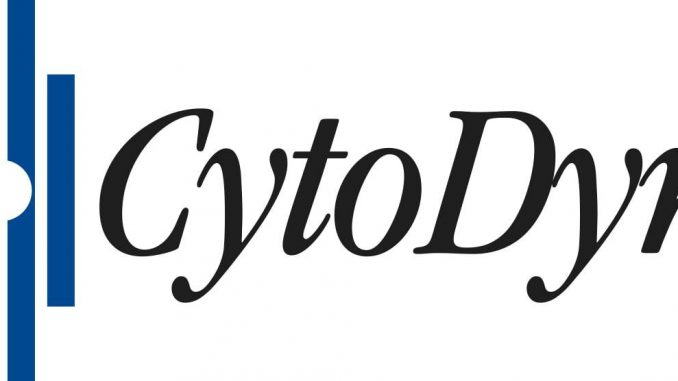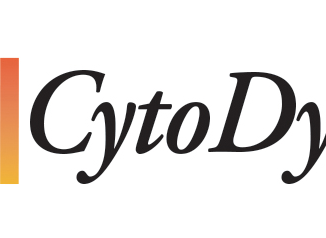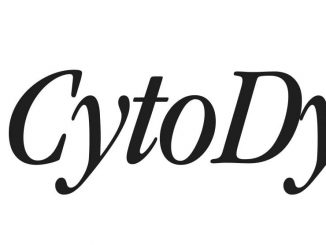
54 eINDs approved by FDA and 49 patients have been treated with leronlimab thus far
VANCOUVER, Washington, Apr 30, 2020 — CytoDyn Inc. (OTC.QB: CYDY), (“CytoDyn” or the “Company”), a late-stage biotechnology company developing leronlimab (PRO 140), a CCR5 antagonist with the potential for multiple therapeutic indications, today announced updates on 49 COVID-19 patients who have received leronlimab under the U.S. Food and Drug Administration’s (FDA) emergency Investigational New Drug (eIND) program:
Eleven (11) Patients in NY hospital: All treated patients were in Intensive Care Units (ICU) because of acute respiratory failure, eight of whom were intubated (placed on mechanical ventilation). One patient was not intubated because of poor baseline pulmonary status (history of lung cancer and had undergone bilateral upper lobectomy). Seven patients were organ-transplant recipients (six patients were renal-transplant recipients and one patient had a history of heart transplant) and were on immunosuppressive regimen. Ten patients were on dialysis and nine were on vasopressors during hospitalization. Despite their pre-existing and severe conditions, we believe we were able to save the lives of four patients. All patient blood samples were evaluated and important powerful results from the effect of leronlimab were demonstrated in almost all of these patients. This data has been submitted to a prestigious journal and we expect the publication on Friday, May 1.
Twenty-three (23) patients in Southern California hospital: Six patients were in critical condition (intubated) and 17 patients were severely-ill, needing oxygen support. No death was reported. Out of 6 critical patients, all were intubated patients, 3 were extubated (taken off ventilator), 2 patients remain relatively stable and still breathing with the assistance of a ventilator and one patient has shown deterioration in respiratory parameters. Of 17 severe condition (but not critical) patients, 11 patients demonstrated improvement in respiratory parameters (8 of them were discharged from hospital, including one patient in the news, Samantha Mottet), 2 patients remain relatively stable, 2 have shown deterioration in respiratory parameters and information is pending for 2 recently treated patients.
Three (3) patients in Georgia hospital: All three ICU patients were intubated and two of them had renal failure at the start of leronlimab treatment. Of these 3 patients, 2 were extubated (taken off ventilator) and 1 patient remains on a ventilator but improving.
One (1) patient in another NY hospital: Patient was taken off oxygen and discharged from hospital after leronlimab treatment.
One (1) patient in Northern California hospital: Patient is now weaning from ventilator and transferred to rehabilitation hospital.
Updates are pending for 10 other patients. Five additional patients have been approved to receive leronlimab under eINDs, which increases the total eINDs approved by the FDA to 54 patients.
Bruce Patterson, M.D., Chief Executive Officer and founder of IncellDx, a diagnostics company and an advisor to CytoDyn, expanded on these findings by stating, “We are excited that patients are responding extremely well to leronlimab as expected from the novel mechanism of COVID-19 pathogenesis we discovered and will be reporting in the coming days.”
Nader Pourhassan, Ph.D., President and Chief Executive Officer of CytoDyn said, “We believe these results, although anecdotal, are very impressive and the number of patients treated under eIND is rapidly increasing. The enrollment for our Phase 2 double-blind and Phase 2b/3 trials is moving along rapidly and we believe the results from both studies will be very powerful due to the mechanism of action (MOA) of affecting the viral load and restoring the immune system. With our first major paper very close to publication, we expect to have a second paper published shortly thereafter, as our MOA is as unique as our results.”
About Coronavirus Disease 2019
CytoDyn is currently enrolling patients in two clinical trials for COVID-19, a Phase 2 randomized clinical trial for mild-to-moderate COVID-19 population in the U.S. and a Phase 2b/3 randomized clinical trial for severe and critically ill COVID-19 population in several hospitals throughout the country.
SARS-CoV-2 was identified as the cause of an outbreak of respiratory illness first detected in Wuhan, China. The origin of SARS-CoV-2 causing the COVID-19 disease is uncertain, and the virus is highly contagious. COVID-19 typically transmits person to person through respiratory droplets, commonly resulting from coughing, sneezing, and close personal contact. Coronaviruses are a large family of viruses, some causing illness in people and others that circulate among animals. For confirmed COVID-19 infections, symptoms have included fever, cough, and shortness of breath. The symptoms of COVID-19 may appear in as few as two days or as long as 14 days after exposure. Clinical manifestations in patients have ranged from non-existent to severe and fatal. At this time, there are minimal treatment options for COVID-19.
About Leronlimab (PRO 140)
The FDA has granted a “Fast Track” designation to CytoDyn for two potential indications of leronlimab for deadly diseases. The first as a combination therapy with HAART for HIV-infected patients and the second is for metastatic triple-negative breast cancer. Leronlimab is an investigational humanized IgG4 mAb that blocks CCR5, a cellular receptor that is important in HIV infection, tumor metastases, and other diseases, including NASH. Leronlimab has completed nine clinical trials in over 800 people, including meeting its primary endpoints in a pivotal Phase 3 trial (leronlimab in combination with standard antiretroviral therapies in HIV-infected treatment-experienced patients).
In the setting of HIV/AIDS, leronlimab is a viral-entry inhibitor; it masks CCR5, thus protecting healthy T cells from viral infection by blocking the predominant HIV (R5) subtype from entering those cells. Leronlimab has been the subject of nine clinical trials, each of which demonstrated that leronlimab could significantly reduce or control HIV viral load in humans. The leronlimab antibody appears to be a powerful antiviral agent leading to potentially fewer side effects and less frequent dosing requirements compared with daily drug therapies currently in use.
In the setting of cancer, research has shown that CCR5 may play a role in tumor invasion, metastases, and tumor microenvironment control. Increased CCR5 expression is an indicator of disease status in several cancers. Published studies have shown that blocking CCR5 can reduce tumor metastases in laboratory and animal models of aggressive breast and prostate cancer. Leronlimab reduced human breast cancer metastasis by more than 98% in a murine xenograft model. CytoDyn is, therefore, conducting a Phase 1b/2 human clinical trial in metastatic triple-negative breast cancer and was granted Fast Track designation in May 2019.
The CCR5 receptor appears to play a central role in modulating immune cell trafficking to sites of inflammation. It may be crucial in the development of acute graft-versus-host disease (GvHD) and other inflammatory conditions. Clinical studies by others further support the concept that blocking CCR5 using a chemical inhibitor can reduce the clinical impact of acute GvHD without significantly affecting the engraftment of transplanted bone marrow stem cells. CytoDyn is currently conducting a Phase 2 clinical study with leronlimab to support further the concept that the CCR5 receptor on engrafted cells is critical for the development of acute GvHD, blocking the CCR5 receptor from recognizing specific immune signaling molecules is a viable approach to mitigating acute GvHD. The FDA has granted “orphan drug” designation to leronlimab for the prevention of GvHD.
About CytoDyn
CytoDyn is a late-stage biotechnology company developing innovative treatments for multiple therapeutic indications based on leronlimab, a novel humanized monoclonal antibody targeting the CCR5 receptor. CCR5 appears to play a critical role in the ability of HIV to enter and infect healthy T-cells. The CCR5 receptor also appears to be implicated in tumor metastasis and immune-mediated illnesses, such as GvHD and NASH. CytoDyn has successfully completed a Phase 3 pivotal trial with leronlimab in combination with standard antiretroviral therapies in HIV-infected treatment-experienced patients. CytoDyn completed the filing of its BLA in April 2020 to seek FDA approval for leronlimab as a combination therapy for highly treatment experienced HIV patients. CytoDyn is also conducting a Phase 3 investigative trial with leronlimab as a once-weekly monotherapy for HIV-infected patients. CytoDyn plans to initiate a registration-directed study of leronlimab monotherapy indication. If successful, it could support a label extension. Clinical results to date from multiple trials have shown that leronlimab can significantly reduce viral burden in people infected with HIV with no reported drug-related serious adverse events (SAEs). Moreover, a Phase 2b clinical trial demonstrated that leronlimab monotherapy can prevent viral escape in HIV-infected patients; some patients on leronlimab monotherapy have remained virally suppressed for more than five years. CytoDyn is also conducting a Phase 2 trial to evaluate leronlimab for the prevention of GvHD and a Phase 1b/2 clinical trial with leronlimab in metastatic triple-negative breast cancer. More information is at www.cytodyn.com.
Forward-Looking Statements
This press release contains certain forward-looking statements that involve risks, uncertainties and assumptions that are difficult to predict. Words and expressions reflecting optimism, satisfaction or disappointment with current prospects, as well as words such as “believes,” “hopes,” “intends,” “estimates,” “expects,” “projects,” “plans,” “anticipates” and variations thereof, or the use of future tense, identify forward-looking statements, but their absence does not mean that a statement is not forward-looking. Forward-looking statements specifically include statements about leronlimab, its ability to have positive health outcomes, the possible results of clinical trials, studies or other programs or ability to continue those programs, the ability to obtain regulatory approval for commercial sales, and the market for actual commercial sales. The Company’s forward-looking statements are not guarantees of performance, and actual results could vary materially from those contained in or expressed by such statements due to risks and uncertainties including: (i) the sufficiency of the Company’s cash position, (ii) the Company’s ability to raise additional capital to fund its operations, (iii) the Company’s ability to meet its debt obligations, if any, (iv) the Company’s ability to enter into partnership or licensing arrangements with third parties, (v) the Company’s ability to identify patients to enroll in its clinical trials in a timely fashion, (vi) the Company’s ability to achieve approval of a marketable product, (vii) the design, implementation and conduct of the Company’s clinical trials, (viii) the results of the Company’s clinical trials, including the possibility of unfavorable clinical trial results, (ix) the market for, and marketability of, any product that is approved, (x) the existence or development of vaccines, drugs, or other treatments that are viewed by medical professionals or patients as superior to the Company’s products, (xi) regulatory initiatives, compliance with governmental regulations and the regulatory approval process, (xii) general economic and business conditions, (xiii) changes in foreign, political, and social conditions, and (xiv) various other matters, many of which are beyond the Company’s control. The Company urges investors to consider specifically the various risk factors identified in its most recent Form 10-K, and any risk factors or cautionary statements included in any subsequent Form 10-Q or Form 8-K, filed with the Securities and Exchange Commission. Except as required by law, the Company does not undertake any responsibility to update any forward-looking statements to take into account events or circumstances that occur after the date of this press release.


